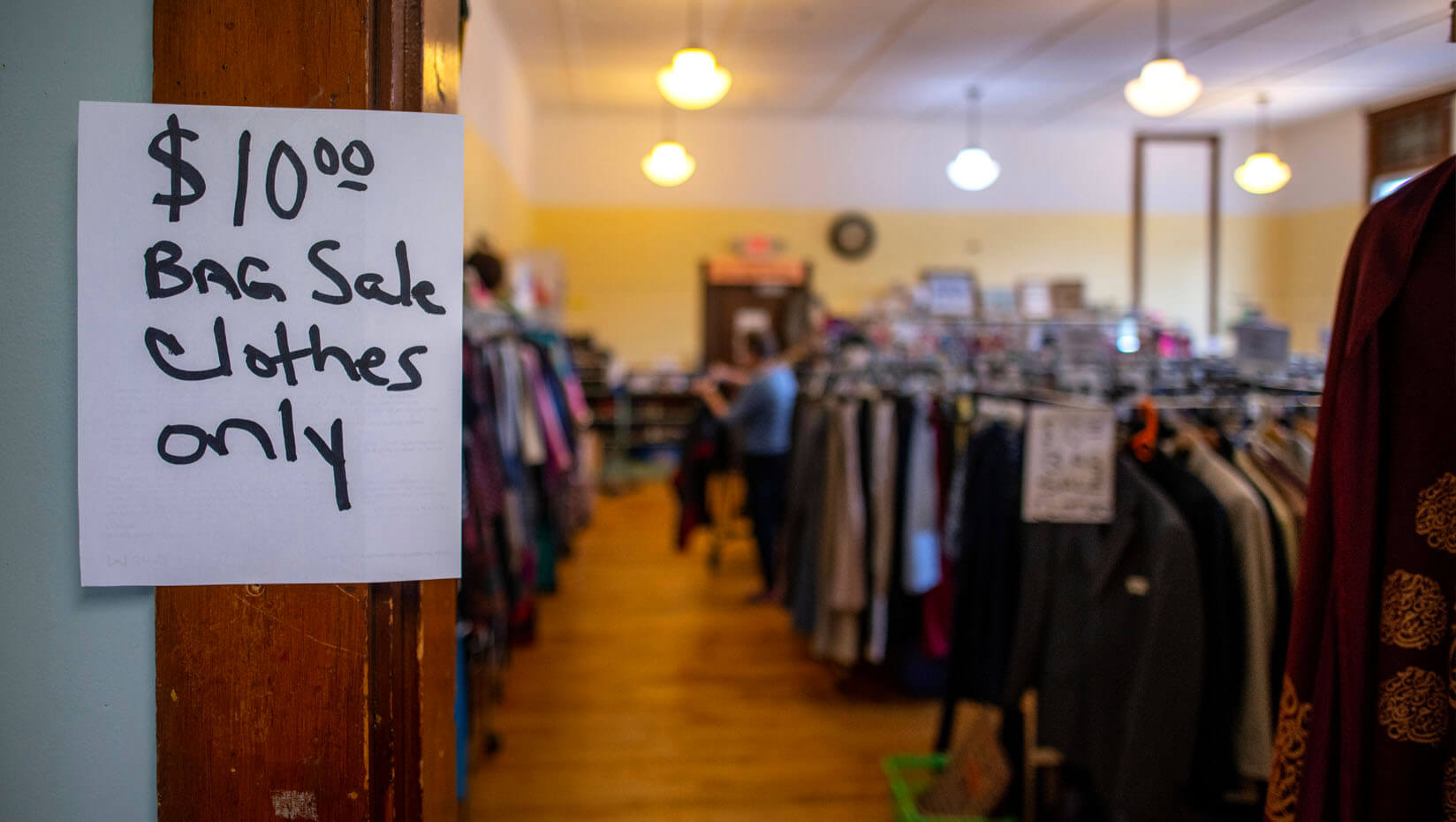
New guide assists community reuse organizations on reopening during COVID-19
A new guide from the Senator George J. Mitchell Center for Sustainability Solutions at the University of Maine can help community reuse organizations make decisions about how — and whether — to open during the COVID-19 pandemic.
Brie Berry, a Ph.D. candidate in anthropology at UMaine and member of the Mitchell Center’s materials management research team, studies the value and meaning of reuse in rural communities. She created the Reopening Reuse guide to help decision-makers weigh the benefits and risks of reopening in ways that make sense for their staff, patrons and donors.
“Amid the pandemic many organizations don’t know how to continue their work without putting their volunteers and patrons at risk,” Berry says. “I decided to develop this guide to make it easier for people to assess risk and think creatively about how to reopen during this time. I’d hate to see these reuse organizations shut down, and that is a real risk right now.”
Community reuse organizations across the state include thrift stores, furniture banks, yard sales, secondhand shops, antique stores and swap shops. They provide many benefits, including offering useful goods at low cost, keeping items out of landfills, and providing an opportunity to give back to the community, and a place to connect with neighbors and friends. Many reuse organizations also use their profits to fund social services like food pantries, support for local schools and health facilities.
These organizations are often staffed by older volunteers, who are more vulnerable to COVID-19 and may be working in small spaces where social distancing could be difficult. The guide compiles state and federal guidance on COVID-19 safety practices and presents case studies focused on how other organizations are adapting. The guide also describes a range of reopening scenarios to help stakeholders envision creative and flexible ways to continue making used goods available to their communities.
“As we discuss when and how to resume service, it has been invaluable to have these important considerations and best practice ideas gathered in one document,” says Debe Averill of the Orono Thrift Shop.
The guide is available from the Mitchell Center’s website.
Contact: Brie Berry, brieanne.berry@maine.edu, 207.200.4996
